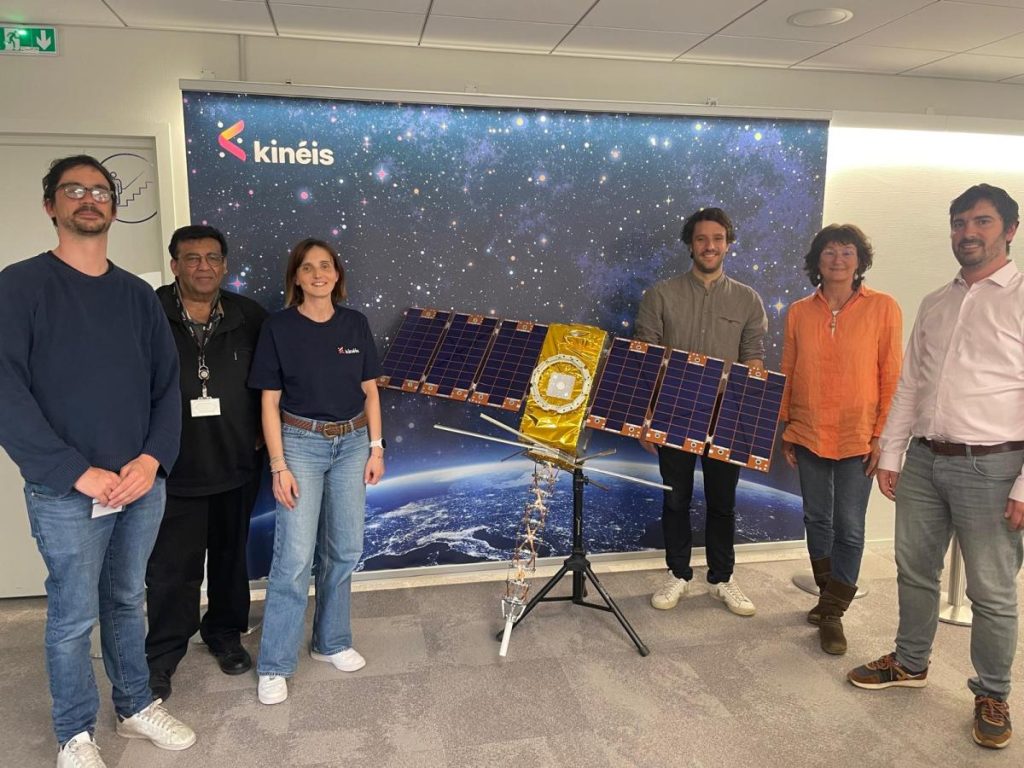
Skynopy lays foundation for proprietary ground station expansion (Image Credit: Space News)
TAMPA, Fla. — One-year-old French ground station provider Skynopy is exploring ways to reuse more than 20 teleport sites owned worldwide by Kinéis, a small satellite connectivity operator also based in France.
Announcing the partnership Oct. 17 during the International Astronautical Congress in Milan, Skynopy said the deal paves the way for establishing its own sites, while continuing to rely on a network of revenue-sharing ground station providers.
The startup currently has agreements to use on-demand capacity across 15 ground stations from partners, including 12 from cloud computing giant Amazon Web Services.
Controlling its own ground station infrastructure would enable Skynopy to install the latest flat panel, phased array antenna technology to meet growing demand for low Earth orbit connectivity.
“Kinéis sites already have the construction works (concrete stab…), connectivity, electrical power and qualified maintenance,” Skynopy founder and CEO Pierre Bertrand said via email, “and therefore adding a Skynopy antenna in this site would be much faster and cheaper.”
Bertrand declined to discuss the financial details of the partnership but said it includes a payment to Kinéis, which also agreed to provide technical support for Skynopy’s antenna plans.
Meanwhile, Skynopy is developing kit similar to a mobile phone SIM card that satellite operators could use to simplify and accelerate access to proprietary and partner ground stations.
Satellite operator customers would also only pay for how much capacity they use instead of the time they lease teleports, Skynopy said in June after raising $3.1 million in early-stage funds.
Ground site reusability
Bertrand described its partnership as the first step for Kinéis toward ground station reusability.
“It leads to diversification of their income,” he said. “But it also opens the door to the recycling of their ground assets when their first generation constellation will become obsolete.”
Kinéis has only deployed 10 of a proposed 25 satellites to date, and plans to provide initial commercial connectivity services for remote Internet of Things devices early next year.
But while Kinéis has not provided a timeline for a follow-on, second-generation constellation, Bertrand said “the market is going very fast [and] Kinéis had to prepare the future even now.”








